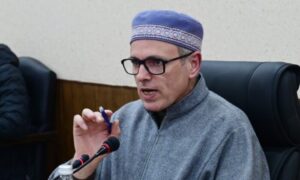![Secretary-General of the United Nations, Mr. António Guterres at Bonn [image: UNclimatechange]](https://impactnews.in/wp-content/uploads/2017/11/Bonn-e1511162150394.jpg)
Secretary-General of the United Nations, Mr. António Guterres at Bonn [image: UNclimatechange]
Despite working overtime and through the night, delegates from 195 national governments failed to break the deadlock at the summit, scheduled from November 6 to 17. Frank Bainimarama, Fiji Prime Minister and President of this year’s COP (Conference of Parties), was finally forced to say, “discussions will continue”, and gavel that through as a resolution.
There was some positive movement on the other vexed financial issue, and it was decided that the Adaptation Fund – meant to help poorer countries deal with climate change effects – would be under the aegis of the 2015 Paris agreement. Industrialised countries had been opposing this because they feared this would compel them to put in money for the fund, which is now almost bankrupt.
Working behind closed doors, delegates also managed to finalise the design of a meeting – called the Talanoa Dialogue – slated at next year’s summit. That dialogue was originally meant to raise national pledges to control greenhouse gas (GHG) emissions; now developing countries have pushed in a discussion of the support they should receive from developed countries.
While delegates from rich countries did not agree to put down how much financial support their governments would provide poorer countries under the Paris agreement, they did agree to report regularly on how much they were providing. Many developing country representatives saw this as a step forward.
In a year that has seen a record number of storms, floods and droughts, there was little progress on how to deal with the financial aspects of this loss and damage, Industrialised countries continued to insist that the matter be left to insurance firms, while developing countries kept saying insurance did not cover many of the catastrophes. The issue will continue to be discussed next year. The Intergovernmental Panel on Climate Change has said global warming is making floods, storms and droughts more frequent and more severe, raising the sea level and acidifying its waters, leading to the death of corals, the nursery of fisheries.
Positives elsewhere
There were other positives at this year summit of the UN Framework Convention on Climate Change (UNFCCC), notably in two areas – governments made progress in developing a “Paris rulebook” that will enable operationalisation of the agreement; it comes into force in 2020. And developing countries got their wish to discuss what industrialised countries had done and were doing to combat climate change right now, before 2020.
Two other long-pending issues were resolved. This 23rd summit (COP23) finalised a Gender Action Plan that will put more focus on the disproportionate impacts of climate change on women, especially when global warming is making water availability less certain. It also prepared a plan to have more meaningful participation of indigenous communities in global climate decision making.
The reactions
While many developing country delegates came out of the summit muttering about “unfinished agenda items” and “kicking the discussions forward”, some observers did have some positive takeaways.
“COP23 delivered on what it set out to do,” said Laurence Tubiana, CEO, European Climate Foundation. “We now have the processes in place to conclude the Talanoa Dialogue and the Rulebook for Paris at COP24 in Poland. There really is no time to lose; we have been painfully reminded of the urgency to scale up our collective climate action by the devastating climate impacts across the world this year.”
On the other hand, Camilla Born, Senior Policy Advisor, E3G, said, “The modest outcomes from this year’s talks raise the bar for countries. The real world is gearing up for greater climate action, countries now need to set the rules in place.”
Patricia Espinosa, Executive Secretary of UN Climate Change, focussed on this year’s Gender Action Plan for praise. “We know from experience that putting women at the heart of tackling climate change can result in more impactful, equitable and sustainable actions. The plan is designed to do just that. It highlights and supports the role women can and do play in building resilience and adapting to the impacts of climate change. It focuses global attention on how we can turn words into deeds.”
Paula Caballero, Global Director, Climate Programme, World Resources Institute, said, “As climate change intensifies, so too will its devastating impacts on the world’s most vulnerable people. Climate finance is critical to help developing countries respond to climate change. Support is and will continue to be an important issue in these negotiations.”
“Little progress was made on the critical issue of ramping up financial and capacity-building support to help developing countries deploy clean energy and other climate solutions, and to adapt to the mounting impacts of climate change; this must be a much higher priority going forward,” said Alden Meyer, Director of Strategy and Policy, Union of Concerned Scientists.
Andrew Norton, Director of the International Institute for Environment and Development (IIED) said: “These talks show signs of achieving some important progress, but equally they lack the necessary decisive action on the rules for the Paris Agreement and on making clear commitments on finance. This demonstrates an alarming lack of urgency as the world is already facing the catastrophic impacts of climate change.”
“At the first UN climate talks since President Trump announced his intention to withdraw the United States from the Paris Agreement, countries made incremental but meaningful progress,” said Nathaniel Keohane, Vice President for Global Climate, Environmental Defence Fund. “Outside the negotiating rooms, in the U.S. Climate Action Centre, a broad coalition of U.S. governors, mayors, business executives, and citizens made clear their commitments to climate action despite the position of the Trump administration. The story of these climate talks was that however much Donald Trump wants to take us backward on climate change, the rest of the world – and the rest of the US – is intent on moving forward.”
Christian Aid’s International Climate Lead, Mohamed Adow, said this year’s meeting showed an encouraging appetite for action on emissions before 2020. “However, despite that progress, COP23 still failed to deliver the financial support needed to accelerate the efforts of developing countries wanting to follow a clean energy path. Developing countries don’t want to be left with the polluting fossil fuel systems of the past that drive climate change. But they need the promised financial support from richer nations to switch tracks and make the most of their clean energy resources.”
Manuel Pulgar-Vidal, head of WWF’s global climate and energy programme and former COP president, said, “In a year marked by extreme weather disasters and potentially the first increase in carbon emissions in four years, the paradox between what we are doing and need to be delivering is clear: countries must act with greater climate ambition, and soon, to put us on a path to a 1.5°C future.”
Christoph Bals, Policy Director, Germanwatch said, “We are disappointed with the limited progress this conference has made to address the need for finance to help the most vulnerable people cope with the impacts of climate change that are already unavoidable. Rich countries need to step up to support the poorest and most vulnerable people.”
ActionAid International expresses disappointment on the last day of COP23 climate negotiations. The organisation’s lead on climate change, Harjeet Singh, said, “We expected much more leadership from countries who pulled together when the US declared they were leaving the Paris agreement. With this year’s floods, fires and hurricanes fresh in their minds, we had assumed that they would come keen to get the job done. But once the talks started, the EU, Canada and Australia slunk back to their comfort zones, siding with the US, instead of driving real change. They continued to put the brakes on climate action and resisted financial measures for countries struggling to cope with climate impacts. Though vulnerable communities were in the spotlight, this still hasn’t translated into the support that they need.”
– With Charlotte Middlehurst, Yao Zhe, Lili Pike
This article was originally published in the Third Pole. To read the original article click here. :


















